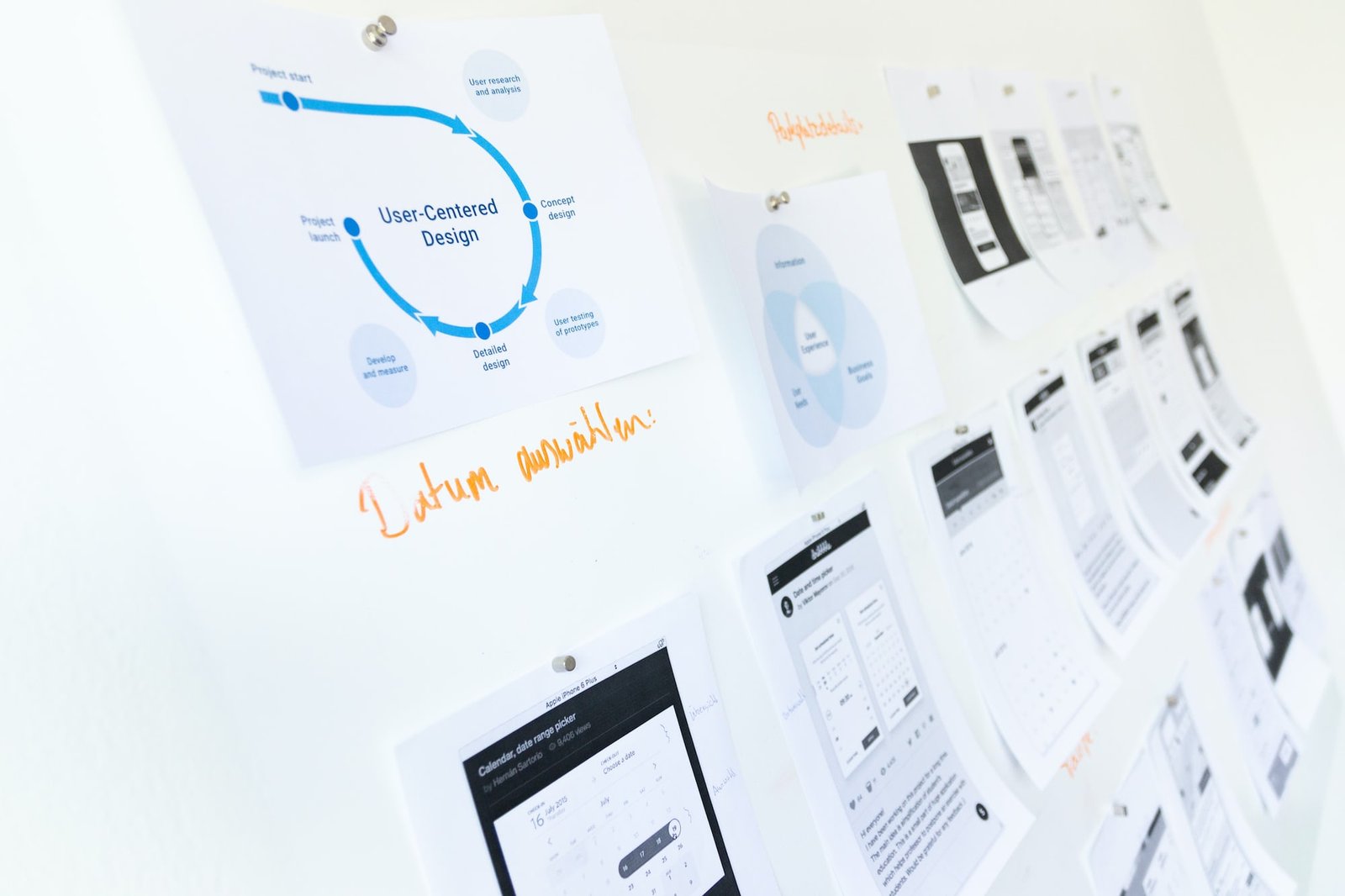The Power of AI in Enhancing Web Design Efficiency

Hey there, fellow business owners and WordPress enthusiasts! Welcome to my blog, where I’ll be sharing some exciting insights on how Artificial Intelligence (AI) can supercharge the efficiency of web design. In this digital age, having a strong online presence is crucial for small businesses to thrive. And when it comes to creating visually stunning and user-friendly websites, AI has become a game-changer.
With my experience as a professional website designer specializing in WordPress solutions for small businesses, I’ve witnessed firsthand the transformative power of AI in streamlining the web design process. From automating time-consuming tasks to enhancing user experience, AI has revolutionized the way websites are created and maintained. So, let’s dive in and discover the incredible ways AI can boost your web design efficiency!
1. Automating Design Processes with AI
Gone are the days when designers had to spend hours manually coding and designing websites. Thanks to AI-powered tools and plugins, web design has become more efficient than ever. AI algorithms can analyze your brand elements, color schemes, and target audience to generate visually appealing templates and layouts. These templates can then be customized to suit your specific needs, saving you valuable time and effort.
Additionally, AI can automate repetitive tasks like resizing images, optimizing website speed, and ensuring responsive design across different devices. It can even generate alternative design options based on user feedback and preferences, allowing you to experiment with different styles without starting from scratch.
To give you a better idea, here’s a table showcasing some popular AI tools that can level up your web design game:
| AI Tool | Key Features |
|---|---|
| Figma | Collaborative design platform with AI-powered prototyping |
| Adobe Sensei | AI technology integrated into Adobe’s creative software |
| The Grid | AI-based website builder that creates designs on the fly |
| Canva | AI-powered graphic design tool for creating stunning visuals |
2. Enhancing User Experience with AI
User experience (UX) plays a vital role in determining the success of a website. AI can greatly contribute to improving UX by analyzing user behavior and tailoring the website’s content and design accordingly. By leveraging machine learning algorithms, AI can gather valuable insights about your users’ preferences and deliver personalized experiences.
For instance, AI can analyze user interactions, such as click-through rates and time spent on each page, to identify patterns and suggest improvements. It can also offer chatbot integration to provide instant customer support and answer frequently asked questions, enhancing the overall user experience.
To summarize the key benefits of using AI for UX enhancement, here’s a list:
- Personalized content based on user preferences
- Improved website navigation and accessibility
- AI-powered chatbots for instant customer support
- Enhanced search functionality with intelligent algorithms
3. AI and SEO: A Winning Combination
Search Engine Optimization (SEO) is crucial for driving organic traffic to your website. AI can significantly boost your SEO efforts by optimizing your website’s structure, content, and overall performance. With AI-powered tools, you can gain valuable insights into keyword research, competitive analysis, and content optimization.
AI algorithms can analyze search patterns and user intent to suggest relevant keywords and phrases. They can also help identify areas for improvement in terms of website speed, mobile-friendliness, and overall SEO performance. By leveraging AI in your SEO strategy, you can stay ahead of the competition and rank higher on search engine result pages.
To give you a comprehensive overview, here’s a transitional phrase leading into a bulleted list of AI-powered SEO tools:
Now let’s take a look at some AI-powered SEO tools that can take your website’s ranking to new heights:
- SEMrush: AI-powered platform for competitive analysis and keyword research.
- Yoast SEO: WordPress plugin that provides AI-driven suggestions for optimizing your content.
- Moz: AI-based tool offering comprehensive SEO analysis and recommendations.
- Google Search Console: Leverage AI to monitor your website’s performance and identify areas for improvement.
4. Overcoming AI Challenges in Web Design
While AI has revolutionized the web design industry, it’s important to be aware of the challenges that come with implementing AI-powered solutions. Here are a few considerations to keep in mind:
- Learning Curve: Familiarizing yourself with AI tools and algorithms may require some time and effort. However, the benefits in terms of efficiency and productivity outweigh the initial learning curve.
- Balancing Human Touch: While AI can automate a significant portion of web design tasks, it’s important to strike a balance and maintain the human touch. Incorporating your unique brand elements and creative vision will ensure that your website stands out from the crowd.
- Ethical Considerations: As AI becomes more prevalent in web design, ethical considerations surrounding data privacy and algorithm biases need to be addressed. It’s crucial to prioritize user privacy and ensure fair representation through unbiased algorithms.
Frequently Asked Questions (FAQ)
Q: Can AI completely replace human web designers?
A: AI can automate various web design tasks and greatly enhance efficiency, but it cannot replace the creative and strategic thinking that human designers bring to the table. The combination of AI-powered tools and human expertise is the winning formula.
Q: Is AI limited to large businesses, or can small businesses benefit from it as well?
A: AI is becoming increasingly accessible to businesses of all sizes. There are many AI tools and plugins specifically designed for small businesses and freelancers, offering cost-effective solutions to boost web design efficiency.
Q: How can AI improve website loading speed?
A: AI algorithms can analyze and optimize various aspects of your website, such as image compression, code minification, and caching techniques. By implementing these optimizations, AI can significantly improve your website’s loading speed.
Q: Are there any ethical concerns related to using AI in web design?
A: Yes, ethical concerns surrounding data privacy, algorithm biases, and AI’s impact on employment need to be addressed. It’s crucial to prioritize user privacy and ensure fair representation through unbiased algorithms.
In Conclusion
AI has undoubtedly revolutionized the web design industry, empowering businesses to create visually stunning websites with enhanced user experiences. By automating design processes, optimizing SEO strategies, and improving user interactions, AI offers endless possibilities for small businesses to thrive in the digital landscape. Embracing AI-powered tools and incorporating them into your web design workflow can unlock new levels of efficiency and creativity. So, why wait? Harness the power of AI and take your web design skills to new heights!


